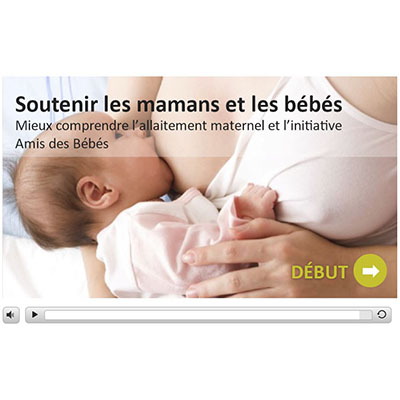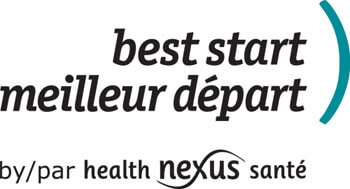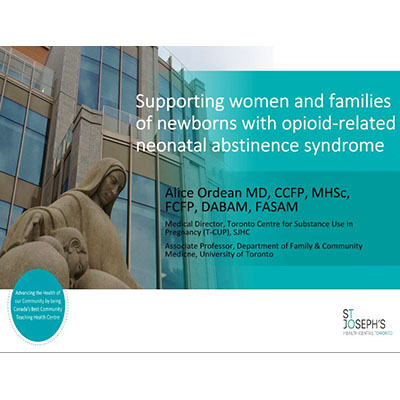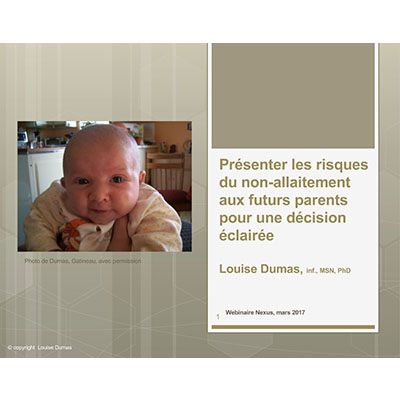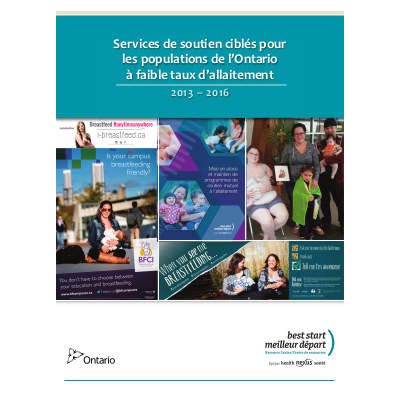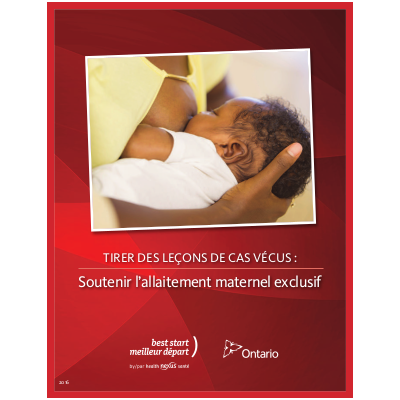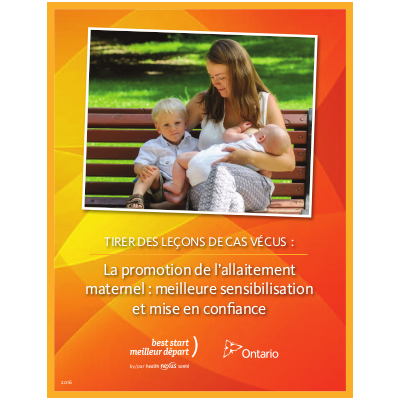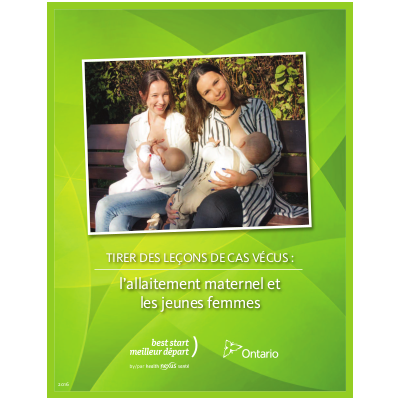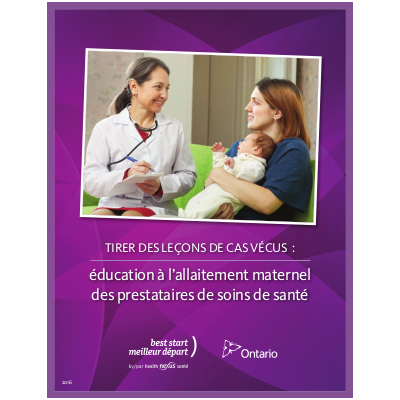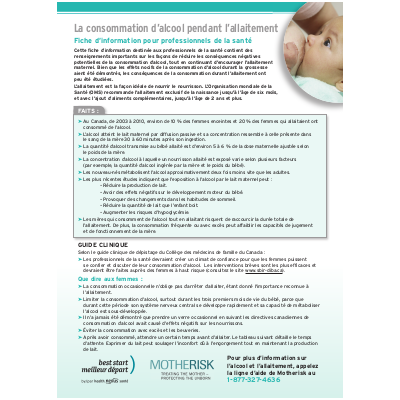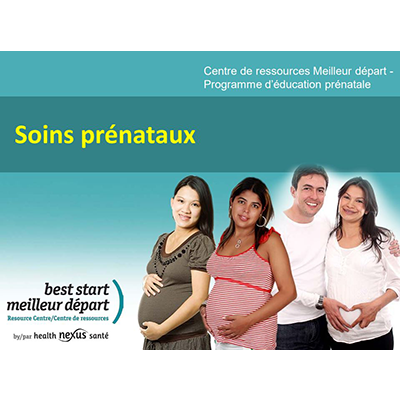This interactive breastfeeding course is an entry-level course designed for staff and volunteers of community agencies and hospitals who work with prenatal women or new families. Completing this course will help you to:
- Protect, promote and support breastfeeding.
- Have a positive influence on pregnant women who are making their infant feeding decision.
- Be a trusted support during the early weeks of breastfeeding.
This course will take 1 to 1 ½ hours to complete.
The goal of this course is to enable health and social service providers, volunteers and individuals who work with pregnant women or new families to protect, promote and support breastfeeding.
By the end of this course you will be able to:
- List at least 5 reasons why breastfeeding is recommended.
- Describe why mothers need support during pregnancy and the postpartum period.
- List at least 3 barriers to breastfeeding and know how to overcome these barriers.
- List ways in which breastfeeding promotes parent-infant attachment.
- Apply the 3-step plan to informed decision-making in practical situations.
- Adopt Baby-Friendly practices to promote, protect and support breastfeeding.
- List at least 3 local or provincial sources of support for mothers.
Also available in English.
Objectives:
- To review the prevalence of perinatal opioid use and associated factors.
- To describe the presentation and management of opioid-related neonatal abstinence syndrome (NAS).
- To review supports for women and families during pregnancy, after delivery and once baby is discharged home.
- To discuss the role of breastfeeding
Presenter:
Alice Ordean MD, CCFP, MHSc, FCFP, DABAM, FASAM
Medical Director, Toronto Centre for Substance Use in Pregnancy (T-CUP), St. Joseph’s Health Centre; Associate Professor in the Department of Family and Community Medicine, University of Toronto
Dr. Alice Ordean is the Medical Director of the Toronto Centre for Substance Use in Pregnancy (T-CUP) at St. Joseph’s Health Centre and Associate Professor in the Department of Family and Community Medicine at the University of Toronto. She has been a principal investigator in numerous research projects including the development of a comprehensive reference guide for health care providers and national data collection relating to methadone maintenance during pregnancy. She has also contributed to international, national and provincial guidelines on the management of problematic substance use in pregnancy, perinatal opioid dependence and smoking cessation during pregnancy.
After watching this webinar you’ll be able to:
- Be aware if the importance of language when promoting, supporting and encouraging breastfeeding.
- Explain the risks of not breastfeeding, for the mother and the baby.
- Understand the amount of scientific evidence associated with these risks.
- Reflect upon your beliefs and professional practices in relation with the language used with perinatal clients and colleagues.
- Discover how to respond appropriately to questions pregnant women and mothers may have about the risks.
- Incorporate the principles of the Baby Friendly Initiative (WHO/UNICEF) in your daily practice.
This webinar took place March 2, 2017.
Presenter: Louise Dumas, RN, MSN, PhD
Honorary professor-researcher in Nursing sciences, at the Université du Québec en Outaouais (Western Quebec), Louise has studied in Canada, USA, and Sweden. Most of Louise’s researches have been focused on perinatal practices, breastfeeding, and patient education. As guest researcher at the Karolinska Institutet, she is part of a research team studying Russian swaddling, skin-to-skin and early mother-infant interaction. Louise has published many articles and book chapters and presented numerous conferences throughout the world. Louise is also lead assessor for the Baby-Friendly Hospital Initiatives, one of the Canadians at the WHO-BFHI committee for industrialized countries. Louise has received many awards for the excellence of her work at the clinical, administrative, teaching and research levels. Yet, Louise remains a simple and open person, passionate for breastfeeding and Baby-Friendly Initiatives. She is also the proud mother of two adult children and grand-mother of two grand-children aged 3 and 8 years old.
As part of a comprehensive strategy to address childhood obesity in Ontario, Health Nexus was funded by the Government of Ontario to offer targeted breastfeeding supports to populations with lower rates of breastfeeding and carried out by Best Start, a key program of Health Nexus. This project was initiated in December 2013 and wrapped up in March 2016. This online report summarizes the project strategies and results as well as recommendations to build on this investment and further support breastfeeding services in Ontario.
Also available in English.
This booklet is part of a series of five Learning from Stories booklets, in which the actions being taken in Ontario to support breastfeeding were surveyed using a Healthy Communities Approach, and the qualitative results of the interviews gathered into stories by the interviewers/writers, in the hope of inspiring and helping service providers in Ontario to protect, promote, and support breastfeeding.
This booklet gathers inspiring stories of innovative work done across the province looking for ways to educate breastfeeding mothers, their support networks, their health care providers, their employers, and society as a whole, in the hope to overcome the many barriers to exclusive and continued breastfeeding.
Also available in English.
See also the other booklets in the Learning from Stories series:
Breastfeeding Promotion to Increase Awareness and Confidence (in English and French)
Prenatal Breastfeeding Education (in English and French)
Breastfeeding Education for Health Care Providers (in English and French)
Breastfeeding and Younger Women (in English and French)
This booklet is part of a series of five Learning from Stories booklets, in which the actions being taken in Ontario to support breastfeeding were surveyed using a Healthy Communities Approach, and the qualitative results of the interviews gathered into stories by the interviewers/writers, in the hope of inspiring and helping service providers in Ontario to protect, promote, and support breastfeeding.
Women are still often made to feel uncomfortable while breastfeeding in public or asked to leave public places such as restaurants or malls. This booklet gathers inspiring stories of service providers and public health officials efforts to reduce this barrier to breastfeeding exclusivity and duration by striving to increase public awareness.
Also available in English.
See also the other booklets in the Learning from Stories series:
Supporting Exclusive Breastfeeding (in English and in French)
Prenatal Breastfeeding Education (in English and in French)
Breastfeeding Education for Health Care Providers (in English and in French)
Breastfeeding and Younger Women (in English and in French)
This booklet is part of a series of five Learning from Stories booklets, in which the actions being taken in Ontario to support breastfeeding were surveyed using a Healthy Communities Approach, and the qualitative results of the interviews gathered into stories by the interviewers/writers, in the hope of inspiring and helping service providers in Ontario to protect, promote, and support breastfeeding.
This booklet focuses on young mothers. Teenage mothers can and will breastfeed if given support and acceptance. Many of the young mothers in the following stories found their support and acceptance through peer role models.We hope that service providers will get inspired to be on the lookout – not only for unique ways of mentoring but also for new ways to surround young mothers with support and acceptance.
Also available in English.
See also the other booklets in the Learning from Stories series:
Supporting Exclusive Breastfeeding (in English and French)
Breastfeeding Promotion to Increase Awareness and Confidence (in English and French)
Prenatal Breastfeeding Education (in English and French)
Breastfeeding Education for Health Care Providers (in English and French)
This booklet is part of a series of five Learning from Stories booklets, in which the actions being taken in Ontario to support breastfeeding were surveyed using a Healthy Communities Approach, and the qualitative results of the interviews gathered into stories by the interviewers/writers, in the hope of inspiring and helping service providers in Ontario to protect, promote, and support breastfeeding.
This booklet explores various themes about teaching health care providers about breastfeeding, and the inspiring passion and commitment these teachers show. Whether the teaching happens in hospitals or community settings, whether the education is in a classroom or takes place informally, the 5 stories gathered in this booklet explain how service providers are making a difference.
Also available in English.
See also the other booklets in the Learning from Stories series:
Supporting Exclusive Breastfeeding (in English and French)
Breastfeeding Promotion to Increase Awareness and Confidence (in English and French)
Prenatal Breastfeeding Education (in English and French)
Breastfeeding and Younger Women (in English and French)
This desk reference in French provides information for Service providers about reducing any possible negative effects of alcohol while continuing to support breastfeeding. It includes a table that illustrates the time clearance of alcohol from breast milk of women, according to mother’s weight, amount of alcohol consumed and hours since consumption.
Also available in English.
The Prenatal Education Program is a teaching aid for face-to-face prenatal education sessions. The program consists of a series of 11 independent modules which are created in PowerPoint and available in PDF format from the webpage accessible by clicking above. Each module includes three files in PDF format: the slides in full size, the extensive speaker notes and a module outline (objectives, teaching aids, references, etc.). The content covers the stages of pregnancy and the transition to parenting. The audience for these modules includes the pregnant woman and her partner.
Module topics are:
1. Prenatal Care,
2. Changes in Pregnancy,
3. Healthy Eating,
4. Physical & Emotional Fitness,
5. Environmental Exposures,
6. Labour and Birth,
7. Comfort Measures,
8. Medical Interventions & Caesarean Birth,
9. Breastfeeding Basics,
10. Postpartum Changes, and
11. Newborn Care & Safety.
Also available in English.
